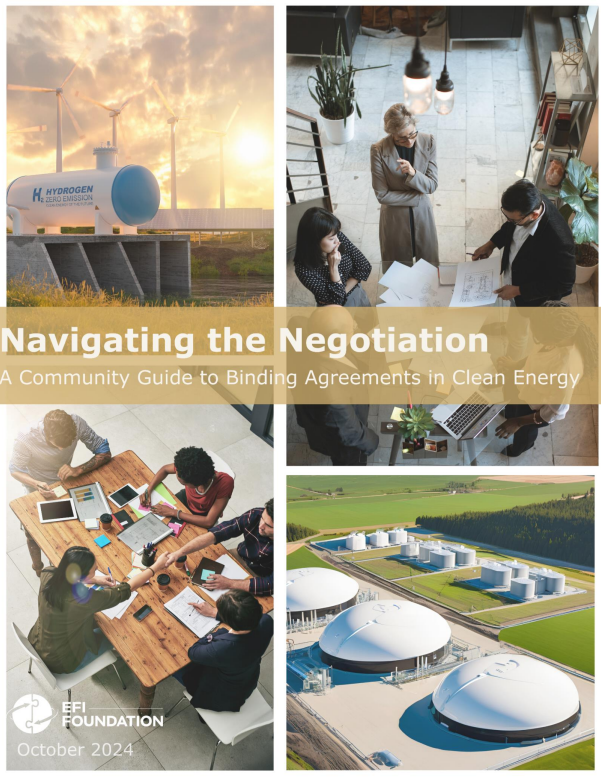Navigating the Negotiation: A Community Guide to Binding Agreements in Clean Energy (October 2024) presents results of a study that aims to help community members near Department of Energy (DOE) Hydrogen Hubs (H2Hubs) understand what to expect during binding agreement negotiations. Our analysis intends to demystify the process and enable more effective negotiations for the mutual benefit of communities and developers.
During the H2Hubs application process, DOE required each hub to develop Community Benefits Plans (CBPs). These CBPs outlined how the hubs intend to provide meaningful benefits to potential host communities. To formalize the commitments made in CBPs, DOE and other stakeholders are taking an additional step by encouraging H2Hubs selectees to establish legally binding agreements with host communities.
As a result, communities near potential H2Hub sites can expect to be approached about entering into binding agreements with developers. Rather than prescribing a one-size-fits-all negotiation model, this report provides procedural knowledge and expectations for these agreements. With this know-how, stakeholders can be equipped to proactively prepare for and navigate the negotiation process. The report explains the following aspects of binding agreements:
- Who is involved: Negotiations involve diverse stakeholders, including local government representatives, in both small and large group settings.
- What is required: Communities need negotiation skills and legal expertise to navigate debates over project details and benefits. Parties tend to agree on broader goals like environmental protection and community benefits but can struggle with specifics, such as project location, financial support, and benefit allocation.
- Where negotiations happen: Negotiations take place in both formal settings and informal gatherings throughout the process.
- When negotiations conclude: The timeline for negotiation can vary widely, from several months to a few years, but more frequent meetings often lead to faster resolutions.
- How to navigate uncertainty: Communities can use strategic pauses and lessons from past negotiations to guide a favorable outcome amidst a change in project ownership or shifting policies.




